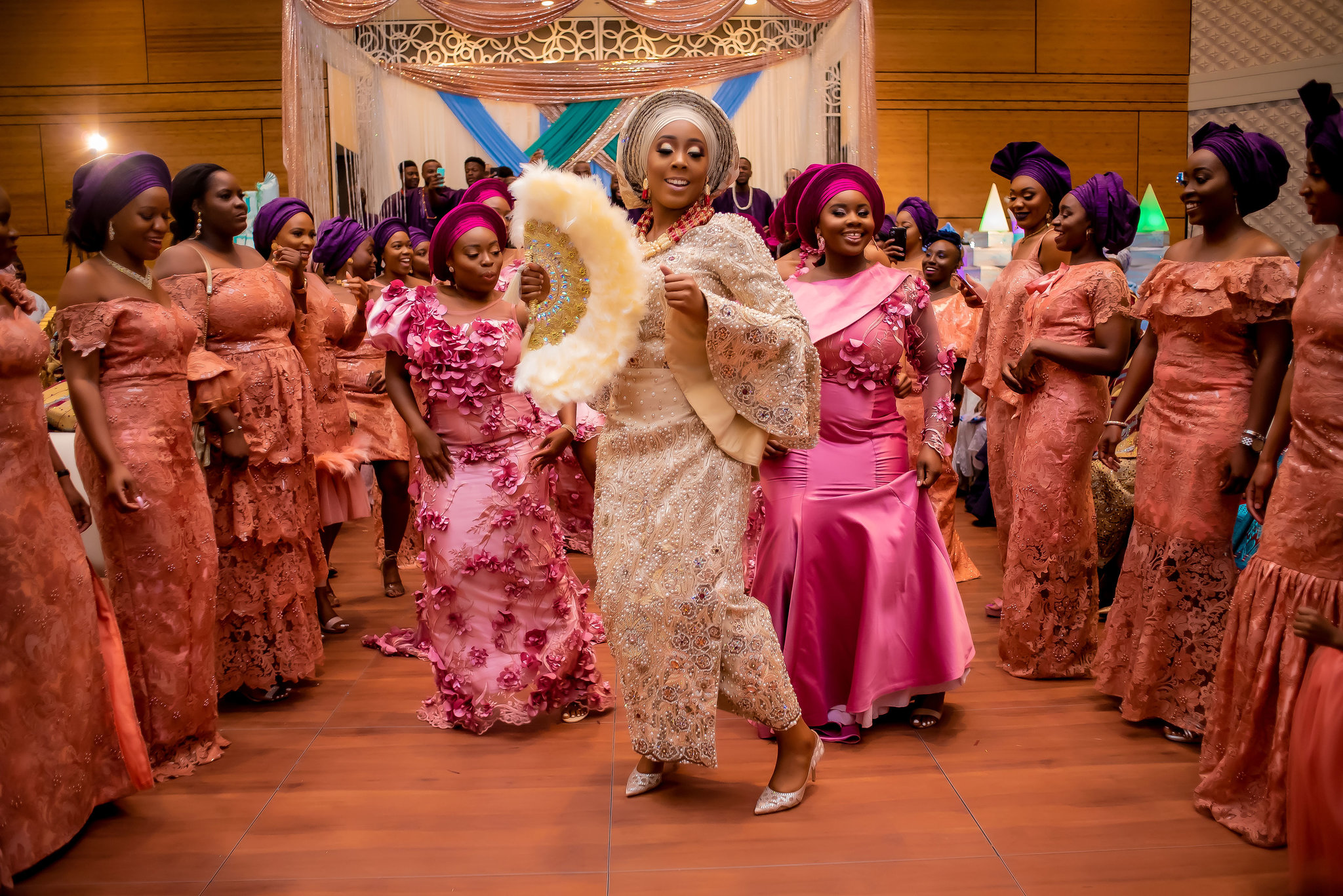African Culture and Traditions
Understanding the Essence of Bride Price in Igbo Culture
Bride Price: a clear and balanced look at its meaning, origins, purposes, controversies, and the path forward in Igbo society. This article explains why bride price matters, who benefits, how it has changed, and whether it should continue or stop.

Marriage in Igbo culture is more than the union of two people. It is the joining of families, communities, and traditions. At the foundation of this cultural celebration is bride price, a practice that has sparked admiration, debate, and curiosity across generations.
For some, it is a meaningful ritual that honours the bride and strengthens family bonds. For others, it has become a source of financial strain or a point of controversy over gender roles and fairness.
Understanding this ancient custom in the Igbo context requires looking beyond the exchange of money and gifts to its social, legal, and cultural significance.
This article explores the essence of bride price, tracing its origins, examining its role today, and considering what the future might hold for this enduring tradition.
The Meaning of Bride Price
Bride price is a traditional payment made by the groom or his family to the bride’s family as part of a customary marriage. In Igbo culture, it is more than a financial transaction. It often includes a combination of money, clothing, food items, drinks, kola nuts, and symbolic gifts that honour different members of the bride’s family.
The exact items and amounts vary from one community to another, depending on family customs, social status, and local traditions. In some cases, the cash portion is modest, while the symbolic gifts carry most of the cultural and ceremonial significance.
At its core, bride price is a way to recognize the value of the bride, honour her family, and formally bind the two families together. It signals that the groom is ready to take responsibility for the marriage and demonstrates respect for the social and cultural norms that guide family and community life in Igbo society.
The Purpose of Bride Price in Igbo Culture
Bride price in Igbo culture is not just a formality or payment, it carries deep social, cultural, and symbolic meaning that goes beyond the exchange of money or gifts.
Traditionally, it serves several important purposes:
- Honouring the Bride and Her Family:
Bride price is a public way of showing respect for the bride and acknowledging her family’s role in raising her. It communicates that the groom and his family value her and are committed to the marriage. - Creating Family Bonds:
The custom of bride price strengthens ties between the two families. It fosters mutual respect, cooperation, and long-term relationships, often extending to friendships, business connections, and community alliances. - Acknowledging the Bride’s Contribution:
In traditional Igbo society, a bride often contributes to her family’s household work and community. Bride price serves as a symbolic recognition of this contribution and the transition of her role to the groom’s household. - Formalizing Customary Marriage:
Bride price is also an important part of the legal and cultural recognition of marriage under Igbo customary law. Its payment signals that the marriage is legitimate, publicly recognized, and binding in both social and legal terms.
From these purposes, it is clear that bride price is more than a transaction. It is a ritual that preserves tradition, respects social structures, and celebrates the union of individuals and families in Igbo society.
How Bride Price Worked Traditionally
Traditionally, bride price in Igbo culture was more symbolic than transactional. It was a meaningful ritual that reflected social values, family bonds, and communal recognition rather than monetary wealth. The items given were carefully chosen to honour the bride, her family, and the wider community.
The process often began with the introduction and negotiation ceremonies where the groom’s family formally met the bride’s family. Elders and relatives discussed the list of gifts and responsibilities, ensuring that the arrangement respected tradition and reflected the social standing of both families. The bride price could include money, traditional fabrics, food items, drinks, livestock, and kola nuts, each with specific symbolic importance.
Beyond the material aspect, bride price served as a social and cultural tool. It helped to establish alliances between families, regulated marriage agreements, and strengthened community ties. In agrarian settings, the ritual also acknowledged the bride’s contribution to her family’s work and social life, and it marked her transition to a new household.
Importantly, the bride price was measured in social respect and customary significance rather than financial value. Families negotiated items that reflected honour, gratitude, and recognition, rather than extravagance. This ensured that marriage remained a celebration of unity and respect rather than a source of financial strain.
In light of these traditional practices, bride price was more than a payment. It was a carefully structured cultural ritual that upheld family values, social cohesion, and community identity in Igbo society.
How Bride Price Works Today

Today, bride price in Igbo communities is a practice that continues to hold cultural significance. However, it has evolved in response to modern life. Urbanization, the cash economy, education, and changing social norms have transformed how bride price is negotiated, perceived, and practiced.
In many urban areas, the cash component has increased, reflecting the influence of money-driven economies. Some families now expect higher payments as a sign of prestige or social status. At the same time, other communities maintain the traditional symbolic elements, giving gifts that honour the bride and her family while keeping the monetary demands modest.
Bride price remains a public and legal marker of customary marriage. Courts in Nigeria often recognize its payment as proof that a marriage is valid under customary law. This legal dimension makes bride price an important factor in issues such as inheritance, property rights, and marital recognition.
Despite its continued relevance, bride price today has sparked debate and criticism. Some view it as a meaningful cultural ritual that strengthens family bonds. Others see it as a source of financial pressure for young men, a potential tool for controlling women, or a practice that has been commercialized at the expense of its original cultural meaning.
In essence, modern bride price reflects a blend of tradition and contemporary realities. While it still honours cultural heritage and family recognition, the challenge lies in balancing respect for tradition with fairness, affordability, and gender equality.
Challenges and Controversies Around Bride Price
While bride price remains a valued cultural practice in Igbo society, it is not without challenges. Over time, some aspects of the tradition have raised economic, social, and ethical concerns. Understanding these criticisms is important for anyone exploring the future of this custom.
- Economic Strain on Young Men:
In many communities, expectations for bride price have risen significantly. Young men may struggle to meet high demands, sometimes taking on debt or delaying marriage. This financial pressure can overshadow the cultural and celebratory purpose of the custom. - Gender Inequality Concerns:
Critics argue that bride price can reinforce unequal power dynamics. When a woman’s family receives payment, it may unintentionally suggest that she is a “transaction” rather than an equal partner in the marriage. Some women’s rights advocates have highlighted how this can limit autonomy and influence expectations within the marriage. - Misuse in Divorce or Marital Disputes:
In some cases, the refund or withholding of bride price has been used to control women or punish them in cases of marital disagreement. Such practices can trap individuals in unhealthy relationships or create unnecessary tension between families. - Commercialization and Loss of Cultural Meaning:
As the monetary value of bride price rises, the original symbolic and social meaning can be lost. What was once a ritual of respect and family bonding can become a display of wealth, turning a cultural practice into a competitive or transactional event.
While these criticisms do not apply to all Igbo communities, they are increasingly part of public discussion. Addressing them thoughtfully can help preserve the essence of bride price while making it fairer and more sustainable for modern families.
Legal and Social Responses to Bride Price
The challenges surrounding bride price have prompted both legal and social responses in Nigeria. Communities, policymakers, and civil society organizations are exploring ways to preserve the cultural significance of the practice while addressing its potential abuses.
- Legal Recognition and Regulation:
In Nigeria, customary law often recognizes the payment of bride price as a key element of marriage. Courts may require proof of bride price for the validation of a customary marriage, especially, in matters of inheritance, property, or marital status. At the same time, some State and community regulations aim to limit excessive costs or set guidelines to prevent financial exploitation. - Public Education and Awareness:
Civil society groups, women’s organizations and religious leaders are increasingly promoting awareness about fair bride price practices. Educational campaigns encourage families to focus on the symbolic and respectful aspects of the ritual rather than extravagant spending. - Reforms to Protect Rights:
Legal experts and policymakers are considering reforms that protect women’s rights and prevent misuse of bride price in divorce or marital disputes. These measures seek to ensure that bride price does not become a tool for coercion or control while maintaining its cultural and ceremonial value. - Community-Led Initiatives:
Some communities have introduced cost ceilings, symbolic lists, or simplified rituals to make bride price more manageable. These grassroots efforts demonstrate that it is possible to honour tradition while adapting to modern economic and social realities.
Through these combined legal and social measures, Nigeria is gradually finding a balance in preserving the heritage and meaning of bride price while addressing financial, ethical, and gender-related concerns.
Should Bride Price Continue or End?
Bride price is a tradition deeply embedded in Igbo culture. Yet, its practice today raises important questions. Should it continue, be reformed, or end completely? There is no one-size-fits-all answer. However, examining the perspectives on both sides can help communities make informed decisions.
Reasons to Preserve Bride Price
- Cultural Heritage:
Bride price is a vital part of Igbo identity. It connects generations, honours family lineage, and preserves long-standing social customs. Abandoning it entirely could erase meaningful cultural rituals. - Strengthening Family Bonds:
When practiced with respect and moderation, bride price fosters unity between families. It is a public affirmation of commitment, a gesture of respect, and a ritual that brings communities together. - Legal and Social Clarity:
Bride price remains an important factor in customary marriage recognition. Its payment often determines legal rights in inheritance, property, and marital status, providing clarity in family and community matters.
Reasons to Reform or End Bride Price
- Addressing Gender Inequality:
Critics argue that bride price can imply ownership or transactional value, potentially limiting women’s autonomy. Reforming or ending practices that reinforce such inequalities protects women’s rights and promotes equality. - Reducing Economic Burden:
High bride price demands can place young men and families under financial strain, delaying marriage or creating debt. Reforms that simplify or cap payments can reduce this pressure. - Preventing Misuse:
In some cases, bride price has been used to control spouses or block divorce. Legal safeguards and community education are necessary to prevent such abuses.
A Balanced Approach
Rather than a complete ban, many scholars, elders, and communities advocate for reform and adaptation. Keeping the symbolic and respectful elements of bride price while reducing costs, clarifying legal protections, and ensuring women’s autonomy allows the tradition to continue in a fair and meaningful way.
In simple terms, the future of bride price lies in thoughtful evolution – honouring heritage while embracing fairness, equality, and modern realities.
Practical Ways to Make Bride Price Fair and Meaningful
As bride price continues to play a role in Igbo culture, communities and policymakers are exploring practical ways to preserve its cultural significance while addressing challenges. The goal is to make the practice respectful, affordable, and equitable for all parties involved.
- Community Dialogue and Education:
Bringing together elders, youth, women’s groups, and religious leaders can help create shared understanding about the purpose of bride price. Open discussions allow families to agree on fair, culturally meaningful practices that reflect modern realities. - Set Reasonable Limits:
Communities can introduce cost ceilings or simplified gift lists to reduce financial strain. Limiting extravagant spending ensures that bride price remains a symbolic ritual rather than a burdensome economic requirement. - Preserve Symbolism over Monetary Value:
Focusing on meaningful items such as kola nuts, traditional fabrics, and small gifts maintains the ceremonial essence of bride price without turning it into a show of wealth. - Protect Women’s Rights:
Legal reforms and community agreements can ensure that bride price is never used to control women, block divorce, or infringe on autonomy. Giving brides and their families a voice in negotiations empowers them and ensures fairness. - Support Young Couples Economically:
Programmes that assist couples with housing, small loans, or wedding planning can reduce pressure to spend excessively on bride price, making marriage more accessible while preserving cultural tradition.
By combining dialogue, regulation, and education, communities can reimagine bride price as a practice that upholds heritage, strengthens family bonds, and remains fair, affordable, and meaningful for modern life.
Reimagining Bride Price for a Modern Igbo Society
As times change, Igbo communities are finding creative ways to keep the beauty of bride price while removing the burdens that have come with modernization and commercialization.
Reimagining the practice means keeping what is meaningful and letting go of what no longer serves the values of love, respect, and unity.
- Simplify the Process:
Communities can create simplified marriage lists that emphasize cultural symbols such as kola nuts, palm wine, and wrappers while reducing excessive or unnecessary demands. This approach preserves respect for tradition without turning it into a financial competition. - Focus on Symbolism and Relationship:
Bride price should be more about honouring the woman and building family relationships than about the amount paid. Emphasizing symbolic gestures rather than material value helps maintain the spirit of unity and appreciation. - Empower the Bride’s Voice:
The bride herself should have a say in the process. Including her perspective ensures that the practice reflects mutual consent and dignity, not social pressure. This approach also aligns with modern views on gender equality and personal autonomy. - Promote Shared Celebrations:
Instead of distributing gifts widely across distant relatives, communities can design ceremonies that focus on togetherness by upholding celebrations where both families exchange prayers, blessings, and goodwill rather than long lists of items. - Use Public Declarations of Respect:
Beyond material gifts, couples and families can exchange public promises, symbolic gestures, or even community service activities that demonstrate love, unity, and social responsibility. These actions can complement or even replace monetary exchanges.
By taking these steps, Igbo communities can breathe new life into the practice of bride price, transforming it from a source of contention into a celebration of culture, love, and shared values that fit today’s world.
Returning Bride Price
In Igbo culture, marriage is considered not only a union between two individuals but also a bond between families. When a marriage breaks down, one of the most symbolic and emotionally charged steps in the dissolution process is the returning of bride price. This act, known in Igbo as ịweghachi ego nwanyi (returning of bride price) carries deep social, cultural, and even legal implications.
Cultural Meaning
Traditionally, the return of bride price is the final confirmation that a marriage has ended. It signifies that the bond created between the two families has been officially dissolved and that the woman is now free to remarry. In many Igbo communities, until the bride price is returned, the woman remains considered as the man’s wife in cultural terms, even if they are separated.
The Process
The process usually involves representatives of both families meeting formally. The woman’s family returns the exact amount or symbolic equivalent of the bride price originally paid, often accompanied by prayers or apologies. It is a solemn moment, emphasizing reconciliation rather than hostility. In some areas, even if the bride price was symbolic, the act of returning it still holds great significance.
Social Implications
Returning the bride price often exposes the emotional and power dynamics surrounding marriage. While it is meant to close a chapter peacefully, it can sometimes deepen tensions between families, especially, when one side refuses to accept the return or when the process becomes public. For women, the requirement can also feel degrading, as it reduces a complex personal relationship to a financial transaction.
Moreover, in some cases, husbands or their families may use the demand for bride price return as a form of control, delaying the process to prevent a woman from remarrying or regaining social independence. Such scenarios have prompted many calls for reform.
Legal Implications
Under Nigerian customary law, returning the money paid on a woman is often recognized as the final proof of marriage dissolution. Some customary courts will not declare a marriage fully dissolved unless this act has been completed.
However, contemporary legal systems, especially those influenced by statutory law are beginning to question the fairness of this requirement. Courts in States like Anambra and Enugu have handled cases where women sought divorce without returning the money, arguing that the practice violates gender equality principles.
The Changing Perspective
Many modern couples and communities now see bride price as a cultural gesture, not a binding contract. As such, some families choose to forgo the return process entirely, especially, when the separation is amicable or when both parties have moved on peacefully.
Ultimately, returning bride price remains a complex intersection of culture, law, and emotion. It reveals how deeply rooted the practice still is in Igbo tradition while also highlighting the urgent need to balance respect for tradition with fairness and human dignity.
Closing Reflection…
Every culture carries its own ways of showing respect, love, and unity, and the Igbo tradition of valuing marriage alliances is one of such. What began as a meaningful gesture to honour a woman and her family has, over time, taken on new layers, some noble, others problematic. As society evolves, so too must its customs.
The real question today is not whether traditions should disappear, but how they can adapt. The heart of this practice was never about wealth or transaction. It was, rather, about gratitude, family connection, and mutual respect. These are values that still matter deeply, even in a world that is changing fast.
Moving forward, the challenge for Igbo communities lies in preserving the dignity and symbolism of their heritage while discarding the excesses that cause division or exploitation. By choosing understanding over judgment and respect over pride, families can turn what once seemed like a financial burden back into what it was meant to be – a simple expression of appreciation and unity.
Tradition should not be a chain but a bridge linking where we come from with where we are going. In that balance lies the true beauty and future of this enduring cultural practice.
References
- https://guardian.ng/saturday-magazine/c105-saturday-magazine/high-bride-price-extortion-of-grooms-and-dignity-of-igbo-women-in-marriage/
- https://www.mondaq.com/nigeria/divorce/1656334/bride-price-in-nigeria-legal-framework-on-refund-practices-and-emerging-feminist-critiques
- https://pmc.ncbi.nlm.nih.gov/articles/PMC10426024/
- https://hts.org.za/index.php/hts/article/view/6533/20799
- https://www.researchgate.net/publication/330235517_Bride_price_payment_and_women%27s_autonomy_Findings_from_qualitative_interviews_from_Nigeria
- https://www.researchgate.net/publication/356637076_Genderized_Implications_of_Bride_Pricing_Culture_in_Igbo_Land
- https://www.arcjournals.org/pdfs/ijhsse/v6-i8/11.pdf
You might want to check this out …
























